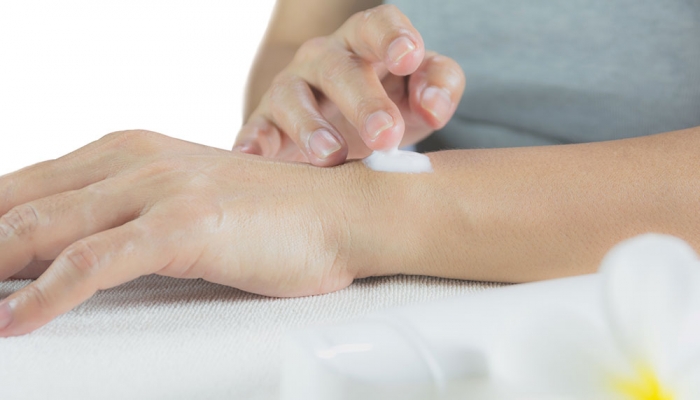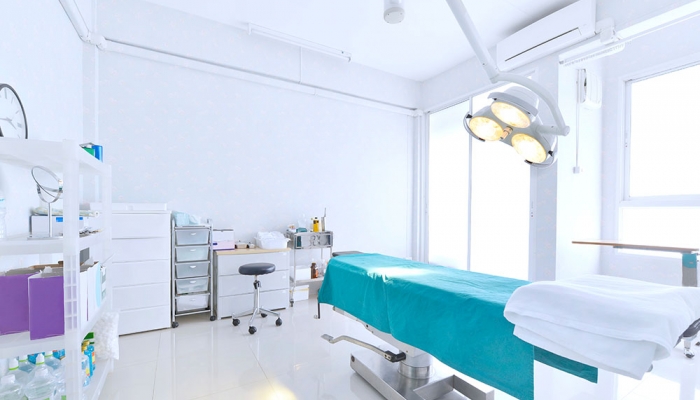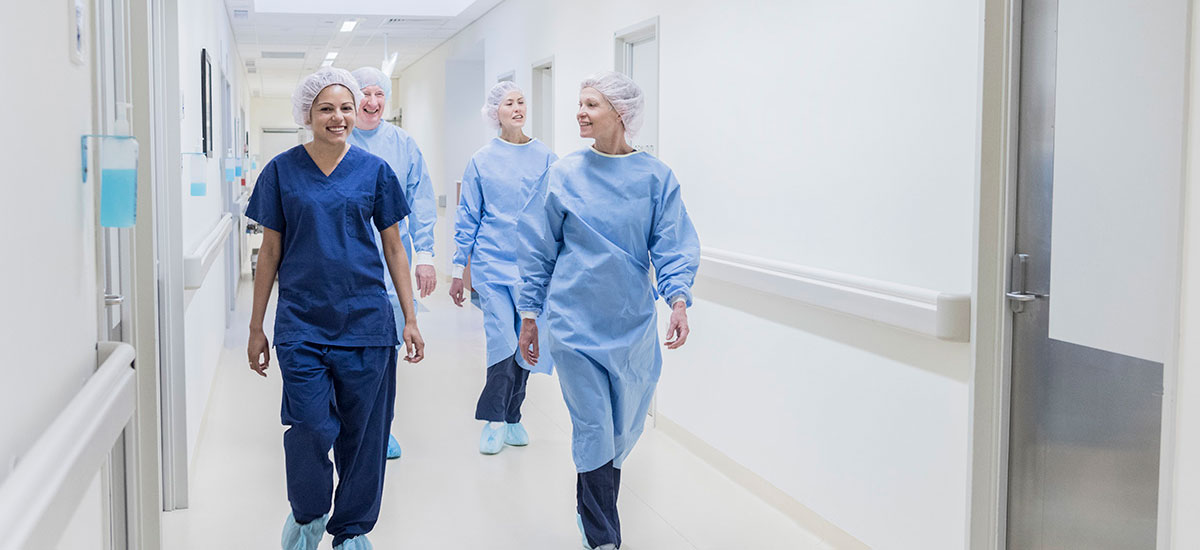What to Expect with Ankle Fusion Surgery

If you have severe arthritis in your ankle, your doctor may recommend ankle fusion surgery. Deciding to have any kind of surgery is always a big decision, and you probably have plenty of questions.
Here are some of the questions we often hear from people considering ankle fusion, and the answers to those questions.
Who is a good candidate for ankle fusion?
Generally, ankle fusion is only recommended for patients with severe arthritis pain who are no longer able to get relief from less-invasive treatments, like medication, physical therapy, steroid injections, braces, and special shoes.
How does ankle fusion help stop arthritis pain?
Three bones—the tibia, the fibula, and the talus—come together to form the ankle joint. When you have arthritis in your ankle, the cartilage that covers the end of those bones is damaged. Cartilage acts as a kind of shock absorber, helping your bones move smoothly against each other. Without the cartilage performing its cushioning function, the action of bone rubbing against bone can be extremely painful. Fusing two or more of the bones together prevents them from moving and, thus, eliminates the source of pain.
What happens during ankle fusion surgery?
Your surgeon will make one or more incisions in your ankle and scrape away the remaining damaged cartilage so that the bones in your ankle joint make contact. The surgeon will compress the bones together and insert screws, plates, or other hardware to hold them in place. Over a period of months, the bones will naturally grow together permanently. In some cases, the surgeon will also use a bone graft to help jump-start the fusion.
How long will recovery take?
You will need to be off your feet for at least six to eight weeks while the bones are growing together, and in some cases you may need to wait even longer. X-rays will let your doctor see whether the bones have fused enough for you to walk on them. You will need to work with a physical therapist to strengthen your ankle and leg. It may be several months before your recovery is complete.
What risks should I be aware of?
Every surgery comes with some risks, including infection, bleeding, and blood clots. In addition to the normal risks of surgery, people who have had ankle surgery are more likely to develop arthritis in other joints in the foot because the way the foot moves has changed; other joints are now bearing more stress. There is also a possibility that the bones won’t fuse successfully, although that risk is relatively low.
Will I walk with a limp after ankle fusion?
Your walk will be a little different after ankle fusion, but with physical therapy and shoe inserts, most people are able to walk without a limp.
What kind of activities will I be able to do after I recover?
You won’t be able to run after ankle fusion surgery, but if you’re otherwise healthy, you should be able to walk, hike, ride a bike, and do similar activities once you’re completely healed.
For more information about ankle fusion surgery, please call Specialty Surgical Center. We would be happy to schedule a consultation with one of our doctors.
Specialty Surgical Center is located in Sparta, New Jersey, and our staff consists of board certified surgeons and anesthesiologists performing procedures in orthopedics, sports medicine, spinal care, podiatry, urology, pain management, ENT, hand surgery, lithotripsy, brachytherapy, GYN, and laser surgery.
For more information about Specialty Surgical Center, call 973-940-3166 or visit our Contact Page.
The information contained in this article is for educational purposes only and is not intended to replace or counter a physician’s advice or judgment. Please always consult your physician before taking any advice learned here or in any other educational medical material.
What Causes Carpal Tunnel Syndrome and How Is It Treated?

If you have numbness, tingling, or pain in your hand or arm, you may have carpal tunnel syndrome. It’s important to see a doctor if you have these symptoms because if the problem isn’t treated, it will get worse, and you can develop nerve damage.
People develop carpal tunnel symptoms when the median nerve is compressed. This is a nerve that gives feeling to all our fingers except the pinky. It also controls some muscles around the base of the thumb.
To understand what’s happening when people develop carpal tunnel syndrome, we need to think about the anatomy of the wrist. There is a “tunnel” about 1-inch wide through which the median nerve travels to reach the hand. Bones make up the bottom and sides of that tunnel, and the transverse carpal ligament bounds the tunnel on the top.
When there’s not enough space in that tunnel, the median nerve gets pinched. This can happen because of swelling in tissues in the wrist. When the nerve is compressed, the symptoms start, mainly pain, tingling, and weakness.
Several factors increase the risk of developing carpal tunnel:
- Sex. Women are more likely to have carpal tunnel syndrome than men.
- Age. Being older raises the risk.
- Heredity. Just as some people inherit blue eyes and short stature, some naturally have smaller carpal tunnels.
- Repetitive hand motions that you may perform as part of a job or hobby, or extreme flexion or extension of the hand and wrist.
- Pregnancy.
- Diabetes.
- Rheumatoid arthritis.
- Thyroid gland problems.
If you develop carpal tunnel syndrome symptoms, your doctor will probably first try treating it with a brace or splint, nonsteroidal anti-inflammatory medicine (such as ibuprofen), a change in activities, and steroid shots.
If these don’t provide enough relief, you probably need a type of surgery called a carpal tunnel release. In this operation, the transverse carpal ligament that bounds the top of the carpal tunnel is cut in two. This makes more room for the medial nerve and relieves the pressure on it. Over time, the ligament may grow back together, but the extra space for the nerve will remain.
The surgery is an outpatient procedure, which means you will go home the same day. You can expect some pain and swelling after the surgery. Your doctor will recommend pain medicine and exercises to keep your fingers from getting stiff.
You’ll be able to use your hand, but carefully, in the first few weeks for activities like driving, writing and self-care.
It may take a few months—or up to a year if your carpal tunnel syndrome was advanced—before your full strength returns after surgery. Depending on how your recovery is going, you may need to see an occupational therapist for hand and wrist exercises.
If you’re wondering if you’d benefit from carpal tunnel surgery, feel free to contact one of our orthopedic specialists for an evaluation.
Specialty Surgical Center is located in Sparta, New Jersey, and our staff consists of board certified surgeons and anesthesiologists performing procedures in orthopedics, sports medicine, spinal care, podiatry, urology, pain management, ENT, hand surgery, lithotripsy, brachytherapy, GYN, and laser surgery.
For more information about Specialty Surgical Center, call 973-940-3166 or visit our Contact Page.
The information contained in this article is for educational purposes only and is not intended to replace or counter a physician’s advice or judgment. Please always consult your physician before taking any advice learned here or in any other educational medical material.
Do Over-the-Counter or Home Remedies for Surgical Scars Work?

Surgery can correct health problems and sometimes even save your life. Unfortunately, it also sometimes leaves you with a scar or two.
Surgical techniques have improved tremendously in the last few decades so that more and more procedures can be done with small incisions that don’t leave big scars. Whenever possible, surgeons try to make those incisions in the least noticeable places.
Still, any injury to the skin, whether it’s accidental or carefully done with a scalpel, can leave a scar. If the scar is visible, you may be wondering if there’s an easy way to make it go away. Do over-the-counter (OTC) or home remedies work?
The short answer is some of them may help, although nothing can make the scar invisible. Here’s a look at what’s out there:
Common OTC and home remedies
- Silicone scar sheets or gels. These products have the most evidence to back them up. Studies have shown they can improve the appearance of some scars, although it may take a few months of regular use to see a difference. Silicone treatment seems to be especially good at improving the appearance of thick scars.
- Onion extract. Some studies have shown products containing onion extract helped improve the appearance of scars, although another study failed to find evidence that they helped. If you want to do a study on yourself, you can try a product called Mederma, which contains onion extract and allantoin. It may take several weeks to see a difference.
- Vitamin E, cocoa butter, aloe vera, or similar lotions: If you use products containing these substances right after your surgery, they may help keep your skin in good shape so you have less of a scar. But there’s no evidence that they make an existing scar less visible.
- Chemical exfoliants. These are often found in anti-aging creams and serums intended to remove outer layers of skin to smooth fine lines. They can help diminish dark marks and acne scarring, although it’s not clear whether they would make a difference with surgical scars.
- Sunscreen. While sunscreen won’t remove scars, it can help keep them from getting darker, so it’s a good idea to always apply it to any exposed scars before going outside.
Prescriptions and surgical treatment
If you’re not satisfied with OTC treatments and home remedies, talk to your medical team. They may prescribe tretinoin or steroids or recommend collagen injections.
Cosmetic surgery is also an option for some scars, although your insurance probably won’t cover it unless your scar is causing a non-cosmetic problem, such as interfering with movement.
Preventing scars
Your best bet is to minimize scarring to begin with by doing what you can to help your incision heal well. Your doctor will give you specific wound care instructions when you leave surgery, but in general, here are some recommendations for reducing scar formation:
- Keep the wound and bandages clean to help promote fast healing.
- Use petroleum jelly or a similar ointment on the wound to keep the skin from drying out.
- Remove stitches at the right time. Taking them out too early or leaving them in too long can increase the chances of scarring.
- After the wound has healed, use sun protection. Covering up or using sunscreen can prevent a scar from darkening and becoming more obvious.
At Specialty Surgical Center, we are sensitive to your desire to avoid scarring and use techniques designed to minimize the problem. Please don’t hesitate to talk to your surgeon about any concerns you have.
Specialty Surgical Center is located in Sparta, New Jersey, and our staff consists of board certified surgeons and anesthesiologists performing procedures in orthopedics, sports medicine, spinal care, podiatry, urology, pain management, ENT, hand surgery, lithotripsy, brachytherapy, GYN, and laser surgery.
For more information about Specialty Surgical Center, call 973-940-3166 or visit our Contact Page.
The information contained in this article is for educational purposes only and is not intended to replace or counter a physician’s advice or judgment. Please always consult your physician before taking any advice learned here or in any other educational medical material.
Do I Need Surgery to Remove a Lipoma?

If you have a lipoma (fatty tumor) under your skin, most of the time you won’t need to have it surgically removed. If you do need surgery, you’ll probably be able to go home the same day and return to work within a few days to a week.
Lipomas are benign (noncancerous) growths made up of fat cells. About 1 percent of us will develop a lipoma. They’re most common among people between ages 40 and 60.
What causes lipomas?
Doctors aren’t sure why lipomas form. They appear to run in families and sometimes seem to be triggered by an injury to the skin.
The following conditions may raise your risk of developing a lipoma:
- Obesity
- Diabetes
- Liver disease
- High cholesterol
- Cowden syndrome
- Gardner’s syndrome
- Madelung’s disease
- Adiposis dolorosa
- Glucose intolerance
What does a lipoma look like?
Lipomas can form anyplace that you have fat cells, but they most commonly show up in your shoulders, chest, armpits, arms, neck, or thighs. Most of the time, lipomas:
- Are less than 2 inches wide
- Feel soft and doughy to the touch.
- Move easily if you press them with a finger.
Occasionally, lipomas grow larger than 2 inches. These are called giant lipomas. It’s unusual, but once in a while a lipoma will form inside your body in an organ, bone, or muscle.
Who needs to have surgery?
Most people will do fine if they just keep an eye on the lipoma and let their doctor know if they see any changes. Surgery may be needed, though, if the lipoma is pressing against nerves or blood vessels and causing pain. You may also want to have a lipoma removed for cosmetic reasons.
Don’t try to diagnose a lipoma yourself. If you see or feel a lump on your body, get it checked out by a doctor. And be sure to tell your doctor if you see any changes in a lipoma.
What is the surgery like?
The surgery usually takes just a few minutes. In most cases, you will only need local anesthesia to numb the area involved. You should be able to go home the same day.
If you have a giant lipoma, which is more difficult to remove, you may need general anesthesia, which means you won’t be awake during the procedure.
How long is the recovery?
If you do need surgery, you should be able to return to your normal activities in about a week. Your surgeon will take a sample of the area removed and send it to a pathology lab to be sure the growth doesn’t contain cancer cells.
For more information about lipoma surgery, please call Specialty Surgical Center. We would be happy to schedule a consultation with one of our doctors.
Specialty Surgical Center is located in Sparta, New Jersey, and our staff consists of board certified surgeons and anesthesiologists performing procedures in orthopedics, sports medicine, spinal care, podiatry, urology, pain management, ENT, hand surgery, lithotripsy, brachytherapy, GYN, and laser surgery.
For more information about Specialty Surgical Center, call 973-940-3166 or visit our Contact Page.
The information contained in this article is for educational purposes only and is not intended to replace or counter a physician’s advice or judgment. Please always consult your physician before taking any advice learned here or in any other educational medical material.
When Can I Have Alcohol Before and After Surgery?

For most surgical procedures being performed at Specialty Surgical Center, we may ask you to avoid alcoholic beverages a few days before and after the operation. Your surgeon or nurse will tell you exactly how long you’ll need to stay away from alcohol during your pre-operative appointment. Some patients may want to let loose a few days before surgery or have a post-surgery celebratory drink, but our physicians warn that doing so is very dangerous!
Alcohol interferes with your blood’s ability to clot, which could make incisions and controlling blood loss during surgery particularly difficult. Bleeding out is a serious surgical complication that can result from thinned blood after consuming alcohol. Alcohol is also an anesthesiologist’s nightmare! We ask you not to have any alcohol after your surgery for the same reason: thin blood may make it difficult for your body to heal, which prolongs the recovery stage.
Alcohol disrupts how your body absorbs anesthesia, and as a result, may make some sedatives ineffective. Because of this, your anesthesiologist could give you additional doses of anesthetic without understanding your current state. This could be extremely dangerous. Fortunately, our team runs various tests before surgery to evaluate your pre-surgery condition. If you’ve had any booze, your surgeon will cancel the surgery indefinitely to avoid these complications. Here are other ways alcohol can affect the body: Healthline.com.
As previously mentioned, we strongly ask patients do not consume alcohol post-operatively because it may affect the length of your recovery. One of the most important reasons why we encourage patients to avoid alcohol consumption is because of the danger presented when alcohol is mixed with any pain medications we prescribe. Additionally, alcohol weakens the immune system and can increase the patient’s risk of infection.
Alcohol widens the blood vessels causing the body to swell up. The surgical area may already be swollen following your surgery, so additional swelling can be dangerous and tamper with the healing process.
Depending on your surgery, your physician may okay very mild alcohol consumption, and only after a certain period of time. However, you should never mix your pain medication with alcohol and wait until your physician gives the okay. If you have any questions or concerns, you can always call our office and we would be happy to tell you when it’s safe to consume alcohol again.
Specialty Surgical Center is located in Sparta, New Jersey, and our staff consists of board certified surgeons and anesthesiologists performing procedures in Orthopedics, Sports Medicine, Spinal Care, Podiatry, Urology, Pain Management, ENT, Hand Surgery, Lithotripsy, Brachytherapy, GYN, and Laser Surgery.
For more information about Specialty Surgical Center, call 973-940-3166 or visit our Contact Page.
What are the Most Common Outpatient Surgeries?

The volume of surgeries performed in Ambulatory Surgical Centers (ASCs) has tremendously increased over the past 10 years. One reason for this shift in surgical location is that the overall cost for a procedure performed at an ASC is typically lower than charged by a hospital (per an article in 2017 in the Bulletin of the American College of Surgeons). For this reason, the Centers for Medicare and Medicaid Services(CMS) has continued to add procedures each year to its ASC Covered Procedures List (CPL) for its beneficiaries.
At the Specialty Surgical Center in Sparta, New Jersey, we perform a wide range of surgical procedures. Below is a description of three of the most common outpatient procedures performed in the US, along with the underlying issues necessitating the procedures.
Hip and Knee Arthroplasty
Accidents involving injury to the hip and knee joints are common across the age spectrum. Meanwhile, arthritis is an extremely frequent cause of hip and knee pain (especially in adults aged 50 and older). According to an article in Clinics in Geriatric Medicine, the following increases the risk of developing arthritis in these joints:
- Obesity;
- Previous joint injury;
- Anatomical factors (e.g.,joint alignment);
- Genetic predisposition
This article also notes that arthritis of a hip or knee joint can be lead to to disability (and the inability to function in the workforce). Arthroscopic surgery (involving the resurfacing of bone) is often prescribed to relieve joint pain. If some knee or hip joint cartilage remains, this may be all that is necessary. It can be performed as minimally-invasive surgery, and we perform joint arthroplasties at the Specialty Surgical Center.
Total hip and knee joint replacements in the US have also become more routine and less invasive since 1980. According to Arthroplasty Today, the number of total joint arthroplasties performed in the US is expected to increase by 2030 to around four million per year.
Rotator Cuff Repair
An Orthopedic Journal of Sports Medicine article concluded that rotator cuff tears are one of the most commonly-occuring injuries. Meanwhile, study findings published in 2018 revealed repair of a torn rotator cuff as the most frequently-performed outpatient surgery in the US. Notably, rotator cuff repairs performed at ASCs have increased by 272 percent over the past decade (per Becker’s ASC Review).
The five customary treatments (from least medically-intensive to most intensive) for a rotator cuff tear are as follows:
- Nonoperative (includes pain medication utilization and physical therapy).
- Partial repair (involves removing part of the injured area).
- Repair (open or arthroscopic surgical intervention).
- Reconstructive surgical intervention (i.e.,using an inserted patch or transferred tendon transfer to affix the tendon to bone).
- Total arthroplasty (invasive surgery in which the joint is totally replaced).
Myomectomy (Uterine Fibroid Removal)
Premenopausal women living with uterine fibroids often experience heavy menstrual flows and uterine pain. This benign condition is also linked to a higher risk of miscarriage. Laparoscopic myomectomies are minimally-invasive, but not all uterine fibroids can be removed by this approach. In comparison to hysterectomies, blood loss is often higher in invasive myomectomies (so a myomectomy patient may need to donate her own blood prior to invasive surgery in case a transfusion is needed).
For large fibroids or those involving the uterine wall, an open abdominal incision may be required. The Mayo Clinic website suggests that a woman may choose a myomectomy over a hysterectomy if a pregnancy is desired (or the woman prefers for some other reason not to have her uterus removed).
Your Surgery Site Option
From pain management to radiation oncology – and surgical procedures (e.g.,orthopedic, gynecological, and ENT) to improving spinal function – let the physician specialists at the Specialty Surgery Center be an adjunct to your primary healthcare providers.
Specialty Surgical Center is located in Sparta, New Jersey, and our staff consists of board certified surgeons and anesthesiologists performing procedures in orthopedics, sports medicine, spinal care, podiatry, urology, pain management, ENT, hand surgery, lithotripsy, brachytherapy, GYN, and laser surgery.
For more information about Specialty Surgical Center, call 973-940-3166 or visit our Contact Page.
The information contained in this article is for educational purposes only and is not intended to replace or counter a physician’s advice or judgment. Please always consult your physician before taking any advice learned here or in any other educational medical material.
Frequently Asked Questions (FAQs) Prior to Surgery

The following are four frequently-asked questions (FAQs) by patients preparing for most types of outpatient surgery. At Specialty Surgical Center, we provide outpatient surgeries to treat diverse medical conditions requiring surgical correction. While the instructions for surgery preparation are mainly specific to that type of surgery, there are some general commonalities to any outpatient surgery preparation (as addressed below).
Question 1 – Why Can’t I Eat or Drink Right Before Surgery?
Surgeries usually involve the provision of anesthesia to lessen pain, and anesthetization enables the surgeons to perform the surgery without unplanned patient movement during the operation. The chief reason that patients are advised not to eat or drink anything for a specified period of time prior to surgery is so that regurgitation and aspiration of food particles in the digestive system will not occur.
Under anesthesia, the ability to “cough up” anything in the throat and esophagus is typically rendered impossible due to temporary muscle paralysis. Consequently, undigested food particles can end up in the windpipe traveling to the lungs – and thereby lead to aspiration pneumonia.
However, patients are often able to take medication with sips of water prior to arriving for surgery – so it is important to follow the specific pre-surgery instructions provided to you.
Question 2 – What are Three Different Administration Routes for Local Anesthesia?
Some standard ways that local anesthetic administration occurs are as follows (per RadiologyInfo.org):
- Topical anesthesia (placed on the skin surface); often used in the cosmetic removal of skin moles.
- Subcutaneous anesthesia (injected below the skin surface); often used for minor skin procedures.
- Regional anesthesia (including intravenous [IV], epidural, spinal, and peripheral nerve block anesthesia).
Anesthesia drugs provided via an intravenous route often have a more rapid impact as compared to administration by other routes. For this reason, intravenous anesthesia administration is often utilized in outpatient surgeries.
Question 3 – What Does an IV Do (and is This Necessary)?
Besides enabling administration of anesthesia directly into the bloodstream, an intravenous tube (IV tube) can also be used for administration of normal saline. An isotonic saline infusion is typically used to treat dehydration and maintain a normal electrolyte balance. Another reason for insertion of an IV prior to surgery is for the provision of painkillers after the operation.
Question 4 – Can I Drive Myself Home after Surgery?
Outpatient surgeries that require any form of anesthesia can decrease your reaction reflex time,which can make driving hazardous. Therefore, patients are typically not allowed to drive themselves home following surgery. Depending upon the type of anesthesia-involved procedure conducted as day-surgery, you may be able to take a taxi to your home (as long as someone accompanies you).
However, it is preferable for you to have a family member or friend drive you to surgery and then home following a surgical procedure, since you probably will not be functioning at your customary level of alertness (and may also be experiencing some pain).
Prior to the day of your surgery at Specialty Surgical Center(and any outpatient surgical center), the patient registration process involves providing a detailed list of experienced health disorders and current medications. Completing this pre-surgical form is essential in order to prevent a negative complication during your surgery. Your written informed consent is also required for a surgery to be performed – whether in an outpatient (ambulatory) setting or in a hospital setting.
Specialty Surgical Center is located in Sparta, New Jersey, and our staff consists of board certified surgeons and anesthesiologists performing procedures in orthopedics, sports medicine, spinal care, podiatry, urology, pain management, ENT, hand surgery, lithotripsy, brachytherapy, GYN, and laser surgery.
For more information about Specialty Surgical Center, call 973-940-3166 or visit our Contact Page.
The information contained in this article is for educational purposes only and is not intended to replace or counter a physician’s advice or judgment. Please always consult your physician before taking any advice learned here or in any other educational medical material.
How to Prevent Getting Sick Before Surgery

Your outpatient surgery may be cancelled if you have an upper respiratory illness or infection. This is because of an increased risk for breathing difficulties while under anesthesia in patients who have upper respiratory illnesses (e.g.,influenza). Meanwhile, an upper respiratory, gastrointestinal, or urinary tract bacterial infection can worsen if the surgery goes forward (although a minor infection may not necessitate postponement of your surgery).
The highly-skilled physicians at Specialty Surgical Center take your overall health status into consideration when planning for your surgery, as well as develop a surgical intervention plan tailored to your individual health needs.
Link Between Nutritional Intake and Sickness Prevention Before Surgery
The time in weeks before an elective surgery can be best utilized by preparing yourself physically and psychologically for both surgery and your post-surgery recuperation period. This is especially the case in older-aged adults, since immunity is decreased in aging bodies. Ingesting daily vitamins in combination with nutritionally-balanced meals can boost your immune system, as well as provide necessary nutrients on a cellular level for the well-being of your organ systems.
Meanwhile, emotional stress can negatively impact your immune system, so lessening pre-surgery anxiety can be physically beneficial (as well as preventing you from dwelling on potential post-surgery difficulties). According to a Harvard Medical School publication, a high pre-surgery anxiety level can actually negatively impact your blood pressure or heart rhythm – which can increase your risk for a heart-related dysfunction during (or just after) surgery.
Importance of Medical Clearance in Elderly Patients
Age-related osteoarthritis (OA) often leads to the need in elderly people for hip or knee arthroscopy. While arthroscopy is one of the varied outpatient surgical procedures performed at the Specialty Surgical Center, elderly patients with co-disorders need to receive medical clearance in order to avoid an outcome of preventable hospitalization.
Around 85 percent of older-aged adults have at least one chronic condition (per the National Institute on Aging). Besides OA, four common co-disorders in elderly adults are:
- Hypertension;
- Atherosclerosis;
- Diabetes (Type 2)
- Chronic Obstructive Pulmonary Disease (COPD)
If you are aged 65 or older, having a flu shot and pneumonia shot well before your surgery date is recommended. While you may not be sick with an upper respiratory infection on the day of your surgery, other patients (or their family members or friends) in the waiting room may have a head cold or the flu.
Diabetes and Surgery in Elderly Patients
The American Diabetes Association specifies that an estimated 25.2 percent of all seniors are diabetic. People living with diabetes are at higher risk for a post-surgical complication (whether in an ambulatory surgery center or in the hospital). In particular, the risk for poor wound healing and infection are heightened as a consequence of diabetes. Therefore, undergoing surgery in the hospital may be preferable for people with diabetes who have been diagnosed with diabetes complications (e.g.,heart disease) or have glucose levels that are not well-controlled.
Recovery Following Surgery – Assessment of Functional Capacity
Whether an outpatient surgery is planned to relieve back pain, remove vein varicosities, or other reason, it is vital that post-surgical, elderly patients living alone can perform self-care activities after returning home following surgery. Prior to any surgery in an elderly patient, the capacity of that patient to engage in the following Activities of Daily Living (ADLs) after return home post-surgery is important to a positive overall surgery outcome (per SeniorLiving.org):
- Eating;
- Dressing;
- Using the toilet;
- Bathing
Specialty Surgical Center not only aims to assist patients through surgical interventions to treat diverse conditions, but through assessing whether a non-surgical option makes more sense depending upon co-disorders and various psychosocial factors.
Specialty Surgical Center is located in Sparta, New Jersey, and our staff consists of board certified surgeons and anesthesiologists performing procedures in orthopedics, sports medicine, spinal care, podiatry, urology, pain management, ENT, hand surgery, lithotripsy, brachytherapy, GYN, and laser surgery.
For more information about Specialty Surgical Center, call 973-940-3166 or visit our Contact Page.
The information contained in this article is for educational purposes only and is not intended to replace or counter a physician’s advice or judgment. Please always consult your physician before taking any advice learned here or in any other educational medical material.
What to consider when you have a high-deductible insurance plan

Anyone having surgery will probably have a few out-of-pocket costs that aren’t covered by health insurance. But if you have a high-deductible health plan (HDHP), your costs may be quite a bit higher.
Because of that, it’s a good idea to do some planning before surgery so you can get a clearer picture of what your costs will be and make a plan for paying them.
The deductible, in health insurance terms, is the amount that you have to pay before the insurance company starts helping with the costs.
A high-deductible plan, according to the federal IRS definition, is a plan with deductibles of at least $1,350 for individuals and $2,700 for a family. Typically people with HDHPs can put some money aside tax-free in a health savings account (HSA) to be used for medical expenses not covered by their insurance.
(It’s also possible to have a plan with high deductibles that is not considered an HDHP by IRS standards, so you are not allowed to save tax-deductible money in an HSA.)
Even after paying your deductible, you may have coinsurance payments, or portions of the remaining amount that you have to pay. For instance, you may have to pay 20% or 30% of the bill after paying your deductible, depending on your insurance plan.
It can get complicated, but we’re happy to work with you before surgery to figure out what your costs are likely to be.
Here are some things you’ll want to find out:
- Is Specialty Surgical Center an in-network provider under your insurance plan? Your insurance company will pick up more of the costs for providers that are in their network.
- Are the surgeons, anesthesiologists, radiologists, physical therapists in-network providers?
- If any providers are not in-network, how much will this increase your costs?
- What does your insurance pay for the procedure or procedures you’ll be having? Ask for the CPT code for the procedure so you can check with your insurance company on whether the procedure is covered and how much they’ll pay for it.
- Are there coinsurance payments you will be responsible after you meet your deductible?
By answering all those questions, you should be able to get a good estimate of what your out-of-pocket costs are going to be. Now it’s time to think about how you’re going to pay for them.
If you have a health savings account, check your balance. It may be a financial lifesaver for you. If you don’t have a health savings account, do you have other savings you can tap? Or perhaps you can put the remaining bills on a low-interest credit card.
If you have no other options, providers will often let you set up a payment plan to pay off your bill in installments. You’ll need to make arrangements with each separate provider, but generally, they will work with you to find a solution. They’d much rather set up a payment plan up front than wait until your bill is months late.
Going through surgery and recovering from surgery are stressful enough, physically and emotionally. It’s best to avoid dealing with financial stress on top of that. Planning ahead can help you feel like you’ve got that part of the problem under control, so you can just focus on healing.
Specialty Surgical Center is located in Sparta, New Jersey, and our staff consists of board certified surgeons and anesthesiologists performing procedures in orthopedics, sports medicine, spinal care, podiatry, urology, pain management, ENT, hand surgery, lithotripsy, brachytherapy, GYN, and laser surgery.
For more information about Specialty Surgical Center, call 973-940-3166 or visit our Contact Page.
The information contained in this article is for educational purposes only and is not intended to replace or counter a physician’s advice or judgment. Please always consult your physician before taking any advice learned here or in any other educational medical material.
My loved one is having outpatient surgery. What do I need to know?

While outpatient surgery is generally less serious than surgery that requires a hospital stay, it’s still no walk in the park. If a close friend or family member is having outpatient surgery, they are going to need some support, both emotional and physical.
Outpatient surgery means they will go home the same day that the surgery is performed. It doesn’t mean they will be back to full strength right away though.
The recovery process—and the support they will need—depends on the type of surgery they’re having, but in general, here are some ways you can help.
Go to the surgery center with them.
Having a companion along as they fill out paperwork and wait to be taken into surgery can help keep their spirits up. You can also help them remember recovery instructions that they may be too stressed or groggy after surgery to recall.
Offer to drive them home and stay with them.
If your friend or loved one has had sedation or general anesthesia, they will not be allowed to drive home. They will also need someone to stay with them at all times during the first 24 hours after their release from the surgery center.
Encourage them to take it easy.
Even after the first 24 hours, they will need help. Their recovery will go smoother and more quickly if they’re able to get plenty of rest in the first few days after surgery.
Help out to help them avoid reinjury.
Lots of everyday activities that your loved one takes for granted could cause problems after surgery. Cooking, cleaning, taking care of pets, grocery shopping, and more may be off-limits for a time depending on the surgery.
Your loved one may want to avoid bothering people to help with these chores. Assure them that you want to help and that their injury-free recovery is important. Remind them that they’ve helped people in time of need and will do so again when they’re well, so they need to let others have a chance to be helpers.
Keep them entertained.
If the recovery process is long, your loved one may become bored and frustrated, especially if they’re used to being active. Bring them good books to read, watch movies with them, or just hang out and talk. Encourage their friends to come visit when they’re ready to see people.
Help keep their spirits up.
If a loved one is going through a lengthy and painful recovery, they may get discouraged. Remind them of the reasons for the surgery and that their hard work during recovery will pay off. Brighten their day with a card or flowers.
And remember, if your loved one has any complications or questions after surgery, don’t hesitate to call their doctor. The staff is used to fielding questions and wants the recovery to go as smoothly as possible.
Specialty Surgical Center is located in Sparta, New Jersey, and our staff consists of board certified surgeons and anesthesiologists performing procedures in orthopedics, sports medicine, spinal care, podiatry, urology, pain management, ENT, hand surgery, lithotripsy, brachytherapy, GYN, and laser surgery.
For more information about Specialty Surgical Center, call 973-940-3166 or visit our Contact Page.
The information contained in this article is for educational purposes only and is not intended to replace or counter a physician’s advice or judgment. Please always consult your physician before taking any advice learned here or in any other educational medical material.
Some of the links on this page will take you away from
this site to another website, which may be a non-WCAG compliant website. SCA may not control the
content or links of non-SCA websites.










